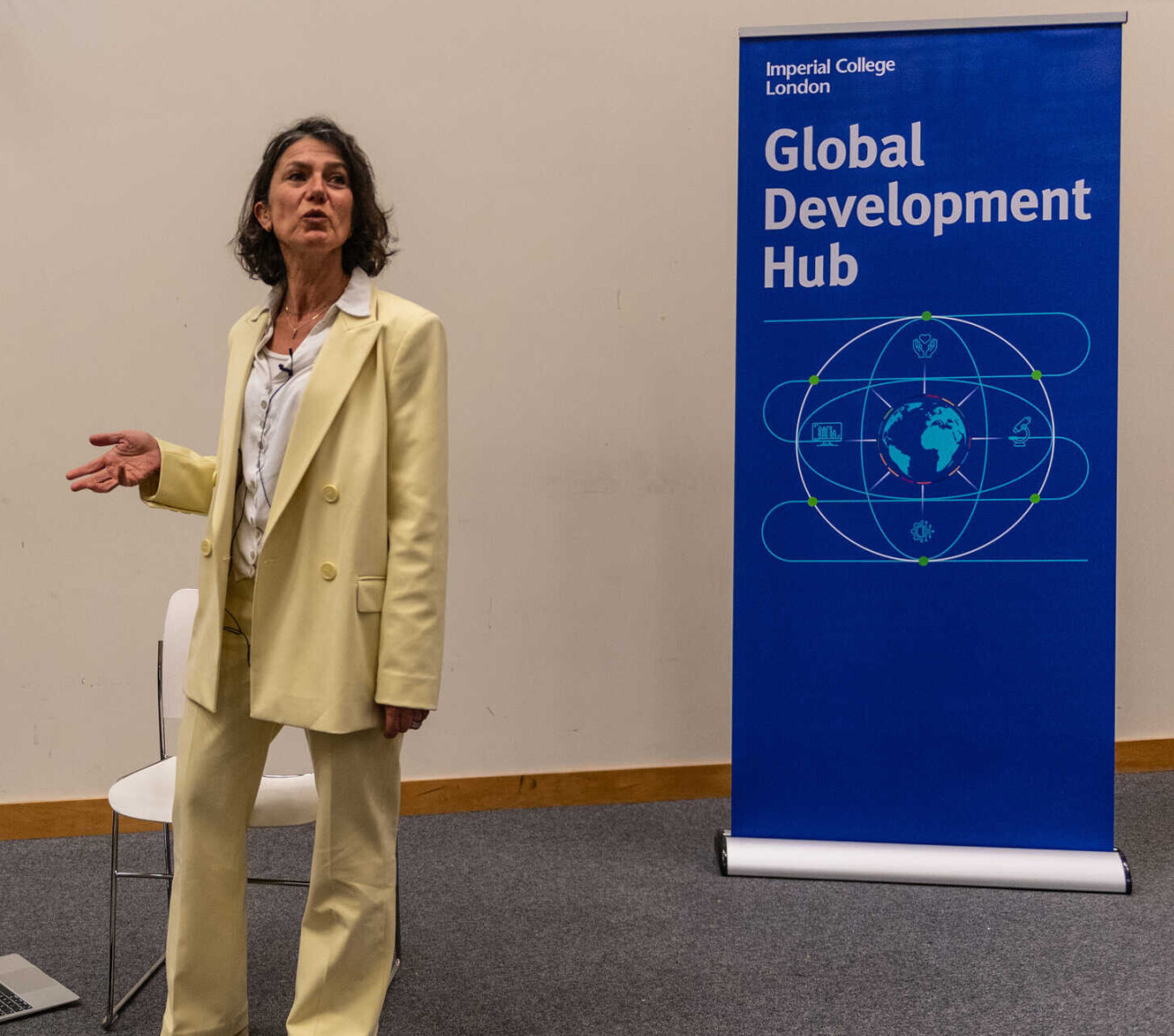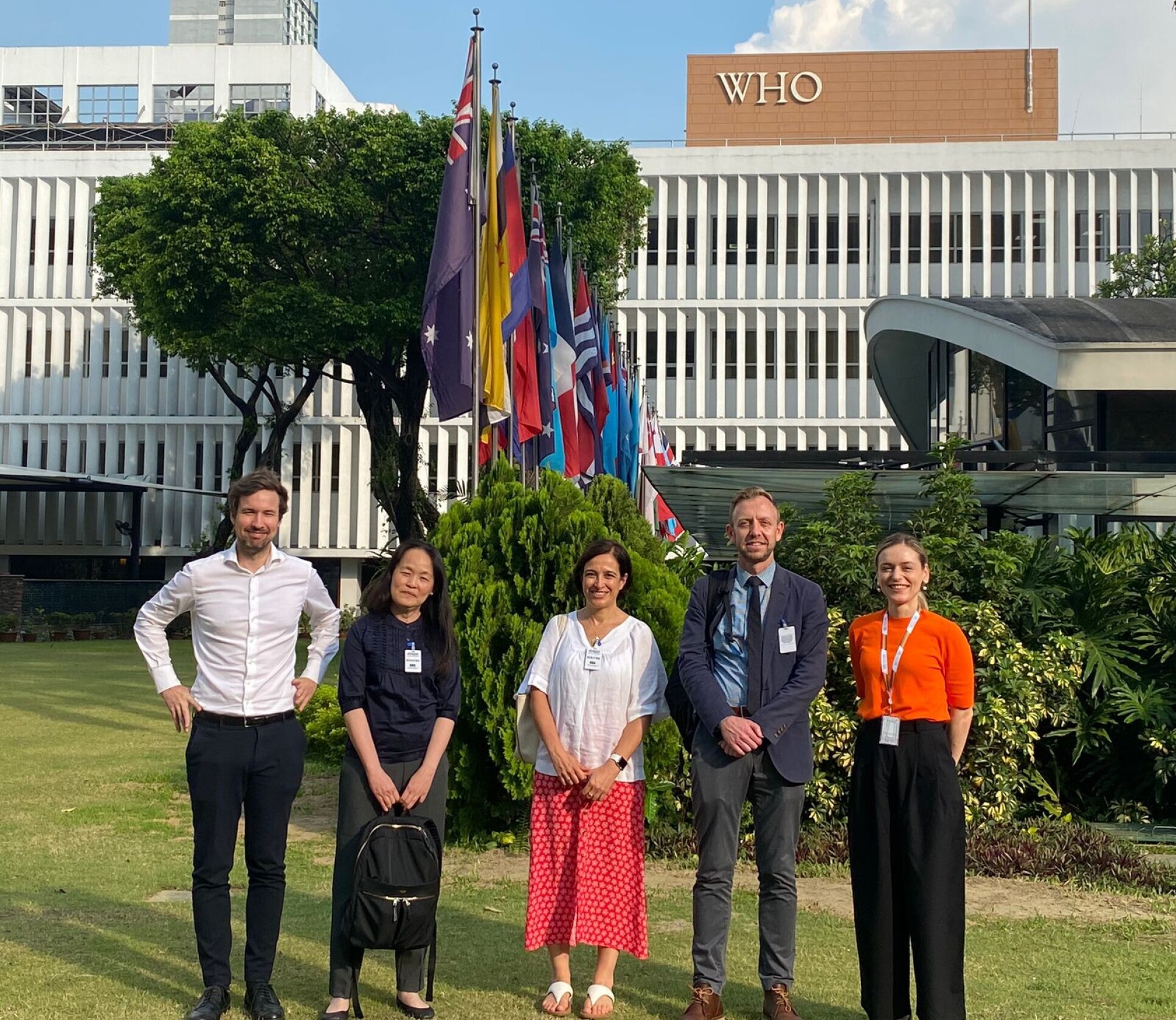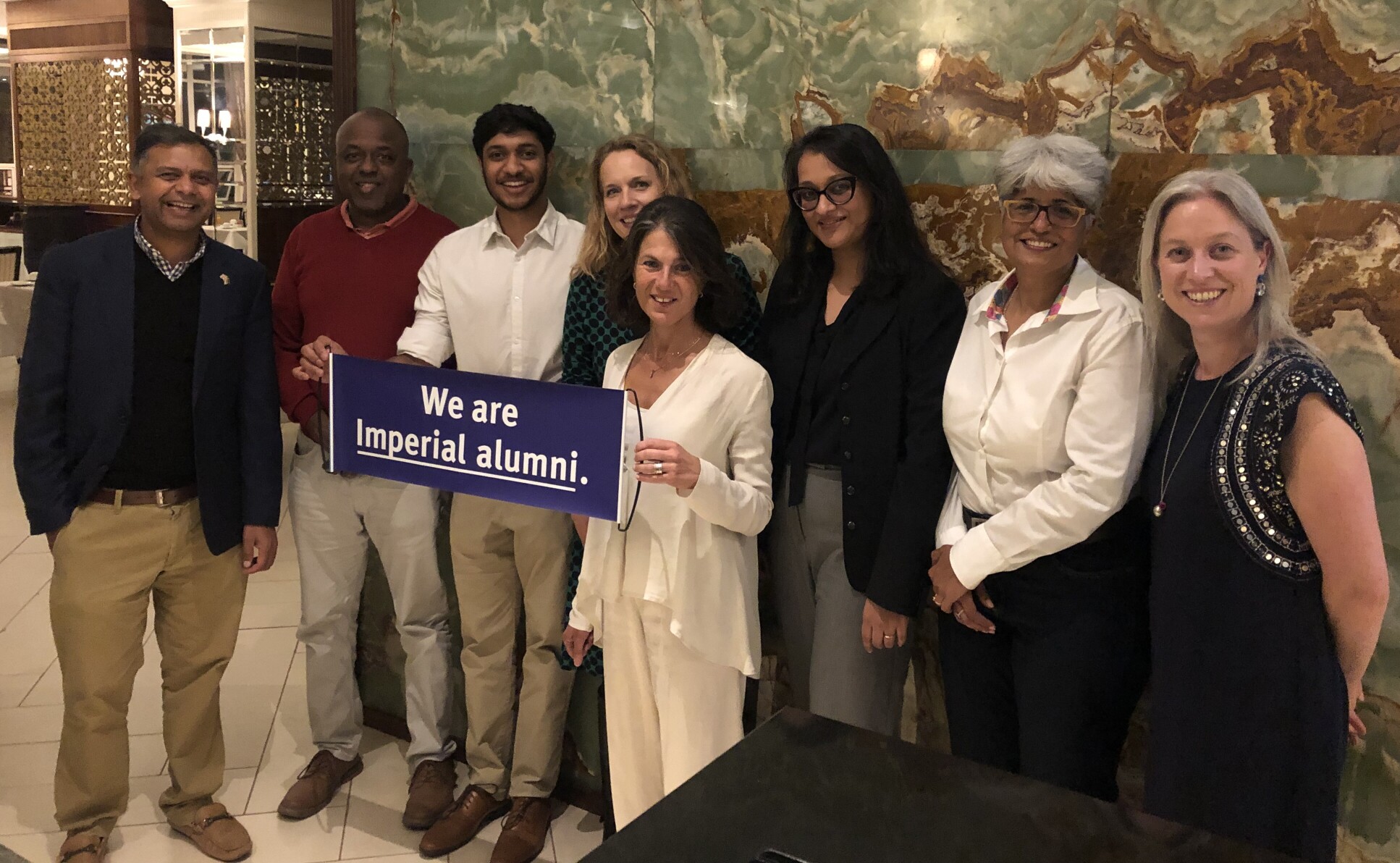Imperial seeks to expand partnerships in Southeast Asia and Africa

The Global Development Hub Team visits Rwanda
Earlier this summer, Imperial’s Global Development Hub led exploratory missions to Thailand, the Philippines, Rwanda and Kenya.
The aim of the visits was to forge new partnerships and opportunities, with a focus on evidence-based policy-making to tackle major development challenges. Both visits also involved Imperial alumni gatherings in Bangkok and Nairobi.
The goal of the work of the Hub is to develop and support cross faculty and international partnerships Professor Sarah Fidler
The Global Development Hub is a central pillar of Imperial’s academic strategy, leveraging research and education expertise in science, technology, medicine, and business to impact on sustainable development challenges.
Launched in 2021, the Hub co-creates new networks and partnerships to influence policy and engage with governments, UN and other multilateral agencies, foundations, industry and NGOs.
The Hub is led by co-Chairs Professor Sarah Fidler (Department of Infectious Disease) and Professor Michael Templeton (Department of Civil and Environmental Engineering) while Clare Turner, from Imperial’s International Relations Office, serves as the Hub’s operational lead.
Professor Fidler comments: “The goal of the work of the Global

Development Hub is to develop and support cross faculty and international partnerships with least-developed countries (LDCs) and lower-middle income countries (LMICs).
“This involves supporting and developing new and existing international research collaborations and improving teaching experiences for our staff and students through meetings, seminars and student projects.”
Areas of mutual interest
In June, Professors Azra Ghani (School of Public health) and Mimi Hii (Department of Chemistry), both from the Hub’s advisory board led a Global Development Hub mission to the Philippines and Thailand.
This included various visits and engagements, notably with the Asian Development Bank, World Health Organisation, United Nations Development Programme, United Nations Habitat and the Food and Agriculture Organisation.

The mission team sought to strengthen existing partnerships and co-create new networks in both countries.
For example, there is an ongoing partnership between Imperial’s Institute of Global Health Innovation and St. Luke's Medical Center College of Medicine in the Philippines around the Climate Cares project. Climate Cares is a team of researchers, designers, policymakers and educators aiming to understand and support mental health in the current climate and ecological crises.
We identified many areas of mutual interest for future collaborations Professor Azra Ghani
Meanwhile, in Thailand, Imperial is part of UKRI Global Challenges Research Fund (GCRF)- South East Asian Research Collaboration (SEARC) focussed on bringing Thai and UK experts together to produce vaccines and medicines for humans and animals in Thailand by using biotechnology.
Professors Ghani commented: “It was a fantastic opportunity for us to share the multi-disciplinary work that Imperial scientists are engaged in with a range of international agencies and stakeholders. Through our discussions we identified many areas of mutual interest for future collaborations for both staff and students and I look forward to seeing the outcomes of these endeavours over the coming years.”
Closer working relationships
In July, Professor Fidler, Dr Adrià Junyent-Ferré (Department of Electrical and Electronic Engineering) and Clare Turner led a mission to Rwanda and Kenya.
This included visits and engagements with the African Institute for Mathematical Sciences (AIMS); United Nations Economic Commission For Africa; African Academy of Sciences (AAS); and Carnegie Mellon University Africa.

AIMS is a pan-African network of centres of excellence for post-graduate training, research and public engagement in mathematical sciences. Imperial has a strategic partnership with AIMS and later this year will run a joint doctoral skills ‘Global Fellows’ programme at AIMS Rwanda bringing together 40 PhD students from both institutions.
Professor Fidler concludes: “Overseas missions such as the recent ones to Southeast Asia and Africa bring manifold benefits in terms of forging closer working relationships with international partners. In the first instance they help create links between scientists and students at Imperial and international partner institutions in different settings working together towards the Sustainable Development Goals (SDGs).
"These closer working relationships can then pave the way for joint grant applications and facilitate exchange opportunities for researchers and students. It can also open important doors and facilitate access to multilateral agencies such as the UN as well as NGOs. Ultimately, it’s about creating these cross-disciplinary, international research and policy networks that can more effectively address the SDGs.”
Article text (excluding photos or graphics) © Imperial College London.
Photos and graphics subject to third party copyright used with permission or © Imperial College London.
Reporter
Andrew Czyzewski
Communications Division